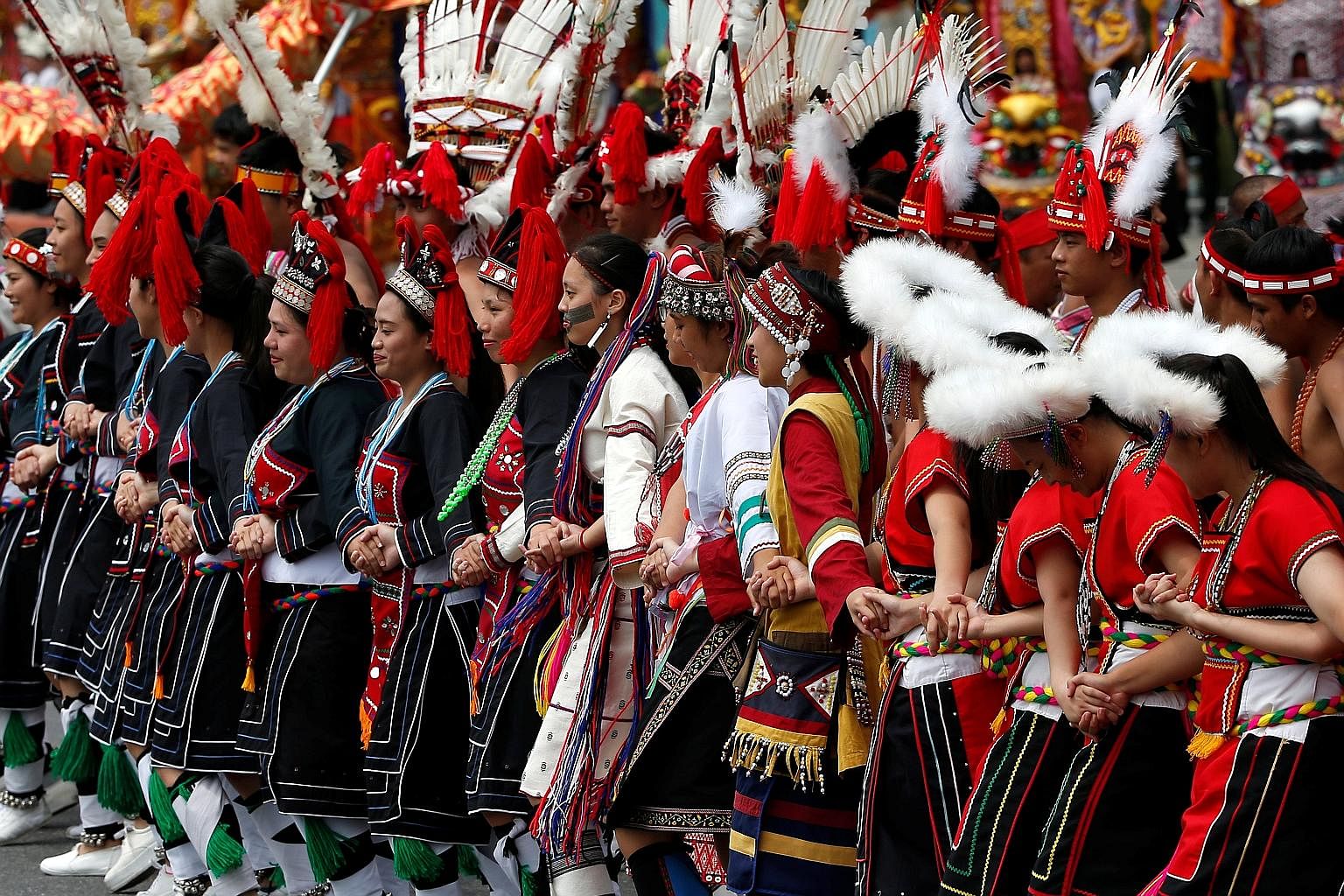When the band struck up Taiwan's national anthem, all eyes were on newly sworn-in President Tsai Ing-wen.
Will she sing the Republic of China (ROC) anthem, penned by Kuomintang (KMT) founder Sun Yat Sen but rejected by her pro-independence Democratic Progressive Party (DPP) and like-minded supporters? Or will she skip certain words, as she had done previously?
In what one analyst calls "a sign of goodwill to Beijing", Ms Tsai sang along - not once, but twice - during the inauguration ceremony.
Taiwan's third transfer of power yesterday is closely parsed for what was said and not said; what was sung and not sung.
Such dissections may seem finicky. But given Ms Tsai's studied vagueness as she tries to manage competing pulls - a looming China, a watching United States, an expectant Taiwanese public, her own ideology - they provide clues as to the direction she may be leading Taiwan and what this means for the region.
The most closely watched was her inauguration speech.

Ms Tsai did not yield to pressure from Beijing to mention the 1992 Consensus - a tacit agreement between Beijing and the KMT that there is "one China" although both sides differ as to what that means.
She offered some minor concessions instead.
She said she recognises the conciliatory cross-strait talks that yielded the 1992 Consensus as a "historical fact". She also said her government will conduct cross-strait affairs in accordance with "the ROC Constitution" along with other relevant legislation.
The ROC Constitution, which came into effect in 1947 when the KMT controlled mainland China, retains claims of sovereignty over its territory at the time - and thus enshrines a one-China principle. Previously, Ms Tsai referred merely to the "constitutional order", which Beijing considers to be a vague term.
Will Ms Tsai's utterances yesterday be enough for Beijing? Perhaps for now. Said Academia Sinica's Professor Wu Yu-shan: "I think Beijing's response will be measured, corresponding to her failure to mention the 1992 Consensus, and also to her (not) talking about independence."
Professor Chen I-hsin of Tamkang University leaves open the possibility that Ms Tsai could mention the Consensus in future.
"She can't say it now, as it will deprive her of the one trump card she holds. She may use it in future in exchange for concessions from Beijing, such as Taiwan's admission into the RCEP," he said, referring to the Regional Comprehensive Economic Partnership.
But others are less sanguine, saying that by not affirming it now, Ms Tsai risks sending ties into a tailspin. China specialist Dennis Hickey of Missouri State University said that Beijing will need to pay heed to public opinion within China. "What will the Chinese people think if their government just stands by and lets certain elements in Taipei destroy eight years of progress in cross-strait relations?"
Ms Tsai's mollifying gestures towards Beijing and the pro-unification camp are also offset by what Prof Wu describes as symbolism in the inaugural ceremony that shows the "new regime is adamantly 'non-Chinese'".
Even the ROC anthem was preceded by an aboriginal hymn.
"All the symbolism is there to emphasise the island's nativist identity, from the aborigines to the immigrants, with no mention whatsoever of the cultural affinities between Taiwan and the mainland," said Prof Wu.
So, while the sense is that there will be an uneasy stalemate for now, things might worsen later on.
Ms Tsai is said to be far more prudent than her DPP predecessor Chen Shui-bian, who tilted towards independence rhetoric to mobilise domestic support as the economy stagnated. As a former mainland affairs minister, she saw first-hand how things turned out. But she may face similar challenges and need to galvanise support later in her term.
"More radical measures are in store for an assertive DPP regime that may take shape in the future," said Prof Wu.
